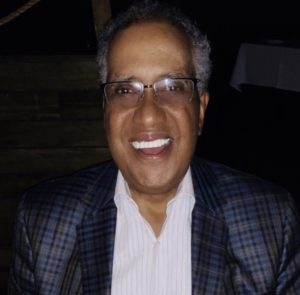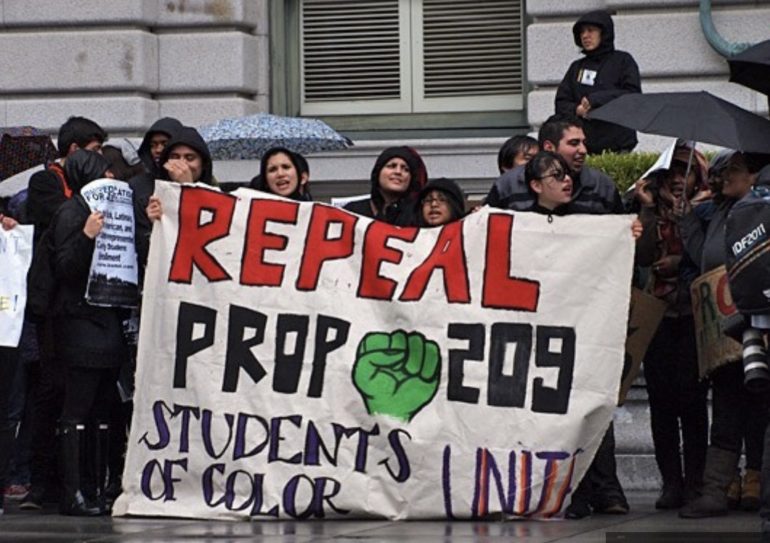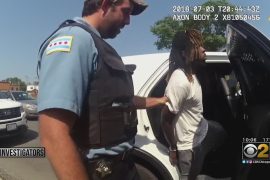Black America has a lot riding on the top-of-ballot contest between Joe Biden and the incompetent incumbent. But on Nov. 3rd save some attention for a bottom-ballot referendum question out in the big, bell-weather State of California. Its outcome may be just as important to you, your children and to your children’s children.
We’re talking here about a new referendum that would repeal California’s infamous Proposition 209. Passed by referendum in 1996, that amendment to the state’s constitution bans affirmative action “on the basis of race, sex, color, ethnicity, or national origin in public employment, public education, and public contracting.”
Its passage 24 years ago effectively reversed the affirmative action goals used in the University of California Admissions Process to benefit Black and Hispanic Students. A subsequent review by the U.S. Supreme Court agreed that rigid racial quotas are indeed out of bounds. But SCOTUS tempered this by allowing public universities and governments to bend admission and hiring standards if they could show a “compelling interest” in diversity, and then apply “strict scrutiny” to their modified selection process. Faced with holding mandated public hearings and complying with more red tape, many colleges and governments simply scrapped affirmative actions and reverted to their old “if you’re Black, get back” ways.
So, what has been the ultimate impact of Proposition 209?
Damage Proven
This very question has been debated in forums – from barbershops and hair salons to highbrow academic conferences. Now comes some actual, 100% data that shows dramatically the damage done to a generation of Black and Hispanic young Californians.
Zachary Bleemer, a doctoral candidate in Economics at the University of California Berkeley is the author of the first research of this kind. He assembled an anonymized database of every student who applied to eight campuses in the University of California system from 1994 to 2002. He included their high school grades, demographics, income and SAT scores. He tracked what colleges they attended (whether in California or elsewhere), along with their academic majors and degrees. For those in California, he also tracked what courses they took and how much they earned in the job market for years after graduation to age 30.
The results, released this summer, are staggering, depressing and infuriating. Read it at https://cshe.berkeley.edu/sites/default/files/publications/rops.cshe.10.2020.bleemer.prop209.8.20.2020.pdf
Reports Bleemer:
“The total enrollment of Black and Hispanic students at the University of California declined by about 800 students per year after 1998. This was the result of the university’s eight campuses all ceasing implementing race-based affirmative action as a result of Proposition 209. (Minority) applicants sharply shifted way from UC’s more selective Berkeley and UCLA campuses, causing a cascade of students to enroll at lower-quality public institutions and some private universities.
“Proposition 209 set off the most massive reshuffling of college students in US. History, as it upended the admission process for hundreds of thousands of students in both the UC and CSU systems,” wrote Teresa Watanabe of the L.A. Times of Bleemer’s work.
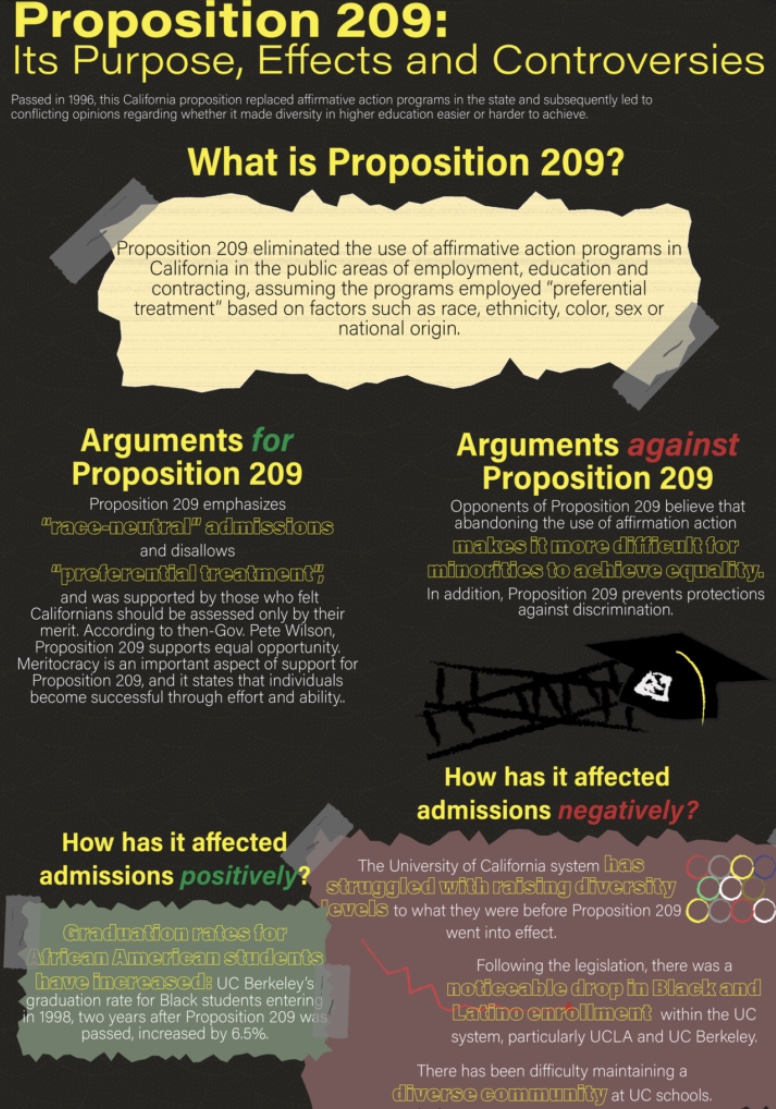
“Suddenly all of these universities stopped using this policy. It seemed like a great opportunity to understand what affirmative action was doing for thousands of students in California. And the answer looks bleak for those students.”
In other words, students who would have enrolled at the flagship campuses before the ban attended less selective universities in the system. This in turn pushed out other Black and Hispanic students who moved down the ladder of selectivity. Those at the bottom lost their grip entirely and exited the system altogether.
The Injury heaped on Black California Students could not have come and worse time in terms of missed opportunities. California in the late1990s was on the brink of an explosion in technological wealth build. Degrees from the states’ premier universities were tickets to Silicon Valley positions.
Bleemer concluded that “Ending UC’s affirmative action polices did not lead the university’s (minority) applicants to earn higher grades in challenging courses , but it did cause them to be less likely to earn STEM degrees and any graduate degrees.” Wages were also diminished.
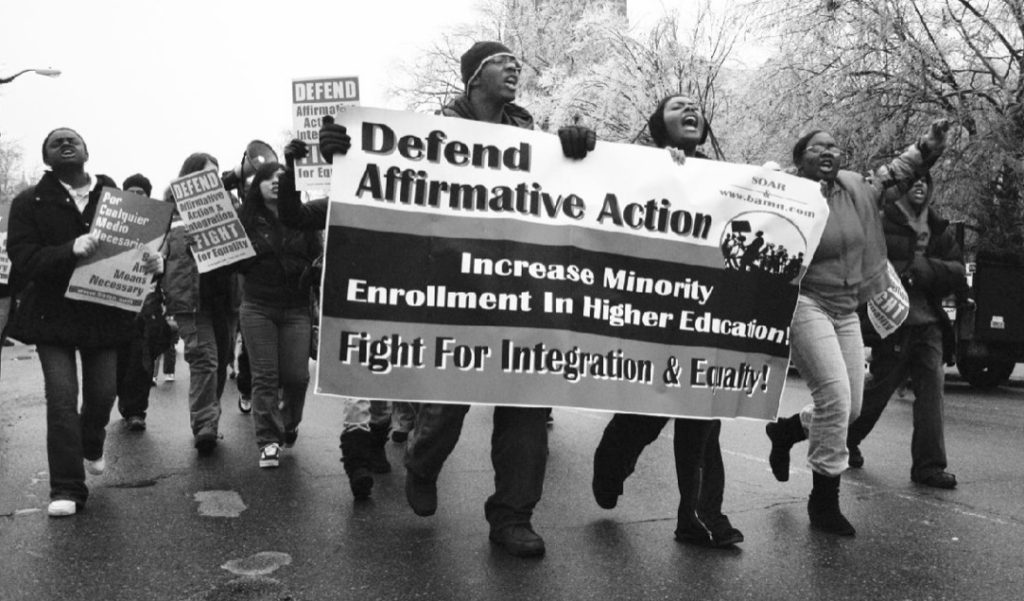
Some opponents of affirmative action have posited a “mis-match theory’” that Black students have been hurt by preferential admissions being unable to compete with academically superior classmates. Bleemer disagrees: “If Black and Hispanic students had benefitted from enrolling in less selective universities, they would have been more successful in rigorous math and science course there. They were not. Instead they were less likely to earn bachelor’s degrees in a science or engineering field as well as less likely to graduate overall compared with Black and Hispanic students before Proposition 209. They are also less likely to earn graduate degrees.”
California seems to have set back a generation of Black and Hispanic students, pushing them down and out of the University of California system and helping to widen the racial wealth gap with seeming little offsetting benefits for other students.
Prop 209 aftermath
What Bleemer’s data doesn’t show, of course, is the way Proposition 209 emboldened the anti-affirmative action crowd nationally, leading to a spate of like-minded challenges and court cases. One suspects that Ward Connerly, the Black businessman on the UC Board of Regents who led the push for 209, had this “pin action” in mind from the get-go.
Connerly (referred to as “scum uncle Tom” by Noble John of Black News weekly) is the ideological cousin to Supreme Court Justice Clarence Thomas, who got into Yale Law School on Affirmative Action and has since railed against it. Affirmative Action had been Supreme Court challenged in the past, it’s true, (1974 DeFunis; 1976 Bakke) but Prop 209 opened the floodgates: 2003 Grutter; 2016 Fisher; and 2019 on behalf of Asian Students against the Harvard University Admission Program .
Justice Thomas (Mississippi Congressman Bennie Brown hung the “ Uncle Tom” label on Thomas) in the 2013 Fisher v University of Texas, opined that UT Austin’s admission policy amounted to discrimination and compared the school’s admission program to slavery and segregation. Say what? Sounds like those old-time slaveholders who argued that slavery was a “positive good” that it “civilized Blacks and elevated them in every dimension of life.”
Likewise Ward Connerly of Prop 209 fame has stated that Affirmative Action is bad for all. He joins this curious Thomas fraternity in arguing that race-based preferences are bad and that it reinforces inferiority in Black beneficiaries of the programs.
One man’s experience
I beg to differ. My path is an argument in favor of saving – and expanding – affirmative action as an antidote to that other, non-viral disease that plagues America: historic, structural, systemic White racism. Let me explain.
In 2004 Federal Judge James B. Moran ruled that Chicago’s Affirmative Action Ordinance regarding MBE (Minority-owned Business Enterprise) utilization could continue with some adjustments that the City provided. This program has enabled many Black firms to start up, expand and prosper. Initially started by Harold Washington and honed by Richard M. Daley, Chicago’s program allowed the creation and development of my UBM, which employed over 100 people and became in 2004 the largest Black owned construction firm in the state of Illinois.
Later it allowed UBM alumni to form another company, CCC, to find a profitable niche and develop the next generation of Black construction professionals. But for this writer, the benefits of affirmative action go beyond providing jobs or earning profits. Affirmative action has empowered me to “Pay it Forward,” to graduate two sons from Georgetown University, with one completing GU Law. And further, it blessed one son with the entrepreneurial spirit to start a network of Charter Schools aimed solely at educating young Black men.
That’s why I know it a really big deal that the California University System Board of Regents recently endorsed unanimously Proposition 16, the upcoming constitutional amendment that will erase and replace Prop 209. Doubtless the social unrest prompted by the murder of George Floyd in Minneapolis helped cause this change-of-heart.
Moment for change
Those ongoing protests, amplified recently by a similar death-by-police killing in Kenosha, WI, are prompting many changes-of-heart. White Artistic Directors in theatres, both small and large, are resigning to give their positions to Black Directors in order to provide spaces for Black artists, playwrights and interns.
Adidas and Google are crying “Mea culpa” for ignoring Black upward mobility in their organizations and are committing big dollars to various non-profit African American causes. Black Lives Matter has become a rallying cry equal to “We Shall Overcome “ of days past.
But in it’s own quiet, superlative way, Zachary Bleemer’s new study on the hurtful impact of Proposition 209 is a compelling call-to-action. Every educator, elected official and social advocate should read this document.
Simply stated: The 24-year affirmative action ban by California’s public universities knocked out Blacks from even applying for college and depressed Black wealth-building at a key moment in the West Coast technology boom. Bleemer has connected these dots beautifully.
CARPE DIEM.
Truly, now is the perfect time to advance some specific proposals advancing Black educational issues. White police pump 7 shots into a Kenosha Black man, and a Antioch, Illinois white boy Trump acolyte shoots into crowd, killing 2. LA Clippers coach Doc Rivers goes on a tear about whites killing Blacks. Major League Baseball and NBA players cancel games in protest to Black deaths There can be no better environment to advance a Black Educational initiative. I’d lay odds 8 to 5 that there will be hand wringing and “what can I do?” by some well-meaning, guilt-ridden managers of the purse … but ultimately they will be responsive to doing the right thing.
Here are some key “asks.”
- College Admission- parlaying California’s Prop 16 change, allow and/or utilize the use of Race in college admissions. Extra credit can be provided for African American applications, fitting within the “strict scrutiny” guidelines of the Fisher/UT at Austin Supreme Court case.
- Persistence Partner Program- Establish a mentor / protégé relationship with Black College students and two (2) adults with time and passion for their success. Two mentors provide continuity in the event one mentor is conflicted. These mentors would guide, counsel and LISTEN to the Black students on campus or online so as to aid in course completion and life management. (This especially if “distance learning” drags on.)
- Computer Contributions- whether on line or in class, Black students will need laptops and broadband access. Apple, Adidas, JP Morgan Chase, Netflix, Amazon, Microsoft, Airbnb, Nabisco, Gatorade all have joined in supported Black Lives Matter. That being the case, donating to Black education is a no brainer. Petitioning these behemoths for hardware and IT assistance in this social climate is not too much to ask.
These are just a few from my “to do” list. Do not let this opportunity pass. It may not come again for another 50 years. And do stay up a bit later on election night, not just to cheer the presidential results … but passage of California’s Proposition 16. Momentum also matters. Like they say at the UNCF: Opportunity is a terrible thing to waste!
